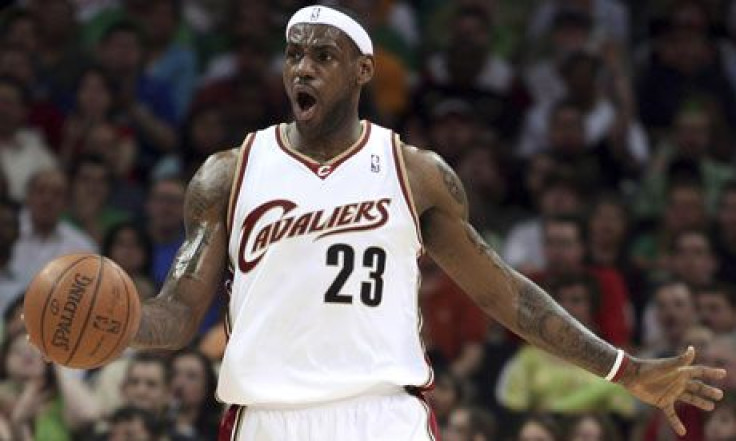Did LeBron James Lose Millions Of Dollars By Returning To Cleveland?

LeBron James’ stunning decision to sign with the Cleveland Cavaliers, the team he spurned for the Miami Heat during his last turn in free agency four years ago, casts him as basketball’s prodigal son: As the 29 year old told Sports Illustrated, he is “coming home” to the team -- and state -- where his career took flight.
Leaving a major market like Miami for the small market, less glamorous Cavaliers would seem like a costly choice. But James will earn the same salary he would've gotten from the Heat -- $20.7 million in 2014-15, the league maximum -- and his homecoming may be lucrative in another realm: endorsements.
Like many world-class athletes, James earns far more money through endorsements than through his salary: According to Forbes, James pulled in $19.1 million in salary during the 2013-4 season and $53 million in endorsements. His marketability increased each year as James cemented his legacy by winning two championships with the Heat, one of the NBA’s most high-profile teams. Even the controversial nature of his signing -- James broadcast his decision in a televised special that earned widespread criticism -- failed to dampen his earning power.
Now James' dramatic return to his hometown makes his narrative even more compelling, said Bob Dorfman, a sports marketing expert at Baker Street Advertising. It "adds a new story, a new chapter, something else for his sponsors to talk about,” Dorfman said.
“It’ll focus the attention on him next season more than it’s ever been focused.”
The NBA’s evolution from a regional to a national game, a change spurred by widespread television coverage, is also a factor. According to Dorfman, fans across the NBA follow star players regardless of the team they play for. “Basketball is a sport where geography doesn’t matter,” he said.
“If you’re really, really good, and you win championships, you’re going to be a marketing commodity wherever you go,” Dorfman said.
The possibility of winning a title -- an honor that has eluded the city of Cleveland since 1964 -- will drive the interest in James’ return. The Cavaliers have not qualified for the playoffs during James’ four-year absence, but the team boasts a number of promising young players including Andrew Wiggins, the No. 1 overall selection in June’s NBA Draft.
A failure to bring a championship to Cleveland will no doubt disappoint James’ fans. Even so, says Paul Swanberg, managing director of the Sports Marketing Center at the University of Oregon, James’ reputation -- and marketability -- would remain intact.
The MVP's embrace of his hometown is the storyline that will stick, Swanberg said. “James has the luxury of going back to Cleveland and not having to worry about damaging his brand.”
© Copyright IBTimes 2024. All rights reserved.












